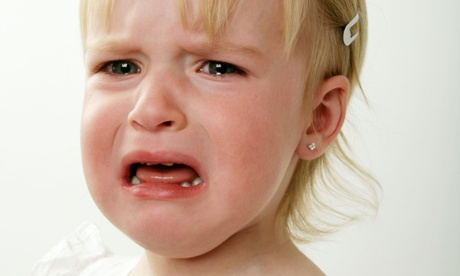There is probably no question that has been as widely discussed as the challenges involved in bringing up children. In the contemporary west, it invariably promotes guilt.

Few questions have been as widely discussed as the challenges involved in bringing up children. Nevertheless, in the contemporary west there seems to be an intrinsic problem with even the best intentioned advice; it invariably promotes guilt.
Whether the source is political leaders, think tanks, educationalists, psychologists, bestselling authors or just fellow parents, more information often means more feelings of failure as suggested strategies for fulfilling a child’s potential flounder in the messy reality of family, school and community life.
Why is it that at the very time in western history when humans have finally been freed from the probability that our children will die young, that anxiety about children has become rampant? Why has the enlightened knowledge generated over the past century, meant to displace the religious superstitions of an earlier age, only increased the level of concern? This is a conundrum which can only be fully explained by revisiting the history of childhood.
The widespread assumption that there was something weird in the west’s traditional understanding of children is correct. In the fifth century, the Catholic church fatefully accepted St Augustine’s doctrine of original sin. This teaching – never accepted by Orthodox Christians – proclaimed that every baby was born guilty and bad as a result of having inherited the sin of Adam. A church-sanctioned baptism could save the soul but not the child’s nature – which was deemed to be irredeemably corrupt.
It was not until the 18th century that there was freedom to reject church teaching altogether. As Rousseau and the Romantics famously proclaimed the innocence of children, enlightened westerners supposedly became anxious protectors of children’s innate beauty even as the church carried on with its medieval ways. Or that, at least, is how most commentators have mistakenly conceptualised the dualistic western approach to child rearing.
In fact, the line between religious and secular perspectives was never as neat as this. The Dr Spock style manuals beloved by 20th century parents were pioneered over 300 years ago by puritans who proclaimed original sin with even more fervency than the Pope. It was these extreme Protestants (who would bequeath so much to American culture), who ensured that the task of parenting even in a prosperous largely disease-free world would become one of inherent anxiety. Was there something more that could be done to ensure the child was ready to be saved? What if one oversight condemned a little one to suffering in this life and the next?
The puritan approach to children laid the foundation for the contemporary confidence that, with knowledge and will, human frailty could be overcome. Whereas the limits of action had formerly been emphasised, in the modern world, teachers and parents alike were encouraged to create what God had not –a civilised human being. It was this activist philosophy which found fateful expression in the harsh regimes of children’s homes and boarding schools, and permeated the middle class as puritan stress on the maternal responsibility to save the sinner and create a Christian became mainstream in western culture. In this century, expectations were raised to the point where a child’s salvation was equated with their personal fulfilment and happiness.
The merging of secular and religious thought meant that by the late20th century, faith in the purity and potential of the child was not something that could simply be take for granted - the childhood spirit had to be actively created and protected. Structured and focussed intervention were needed for a young person to become who they really were. Worry about what could be lost had been transferred from heaven to earth, but the earnest search for salvation continued.
The dominant assumption that the celebration of innocence simply replaced the barbaric doctrine of original sin has hindered understanding of the Western experience of raising children. Original sin shaped the west’s understanding of what it meant to be a human, and how to look after a child, for over 1,500 years. But it was the merging of this tradition with activist liberal thought which created the heightened expectations we struggle with today. Revisiting this history will not resolve the complex task of being a parent or providing quality child care in the 21st century, but it might help us understand why we often feel so guilty about it.

No comments:
Post a Comment